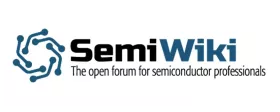Why Did Apple Buy a Fab?
It was announced today that Apple has purchased a 200mm fab located in San Jose from Maxim Integrated Products for $18.2 million dollars. My initial reaction to this announcement was shock but then I started thinking through what Apple might use the fab for and I concluded this announcement is less significant and surprising than it may appear at first look.
The first point to make is this is a relatively old and small 200mm fab and is not suitable for production of Apple’s applications processors. According to the SEMI World Fab Watch Database the fab was built in 1987 and that is really old by fab standards. The same database also indicates that the capacity of the fab fully ramped was 10,000 wafers per month and that is also low by fab standard. Apple’s latest applications processors are made using 16nm/14nm FinFET processes with 10nm in development. 200mm equipment has only been pushed down to around 45nm and is simply not available for smaller nodes. Even if it was possible to make applications processors in this fab, low volume 200mm production wouldn’t be economical.
So if they aren’t going to make the applications processors in the fab what are they going to do with it.
To read the full article, click here
Related Semiconductor IP
- Specialized Video Processing NPU IP for SR, NR, Demosaic, AI ISP, Object Detection, Semantic Segmentation
- Ultra-Low-Power Temperature/Voltage Monitor
- Multi-channel Ultra Ethernet TSS Transform Engine
- Configurable CPU tailored precisely to your needs
- Ultra high-performance low-power ADC
Related Blogs
- The Man Who Thinks Apple Will Buy ARM
- Apple Will NOT Buy ARM
- Did Apple Influence AMD's TSMC Foundry Switch?
- Foundry Model Busted: Will Apple Fab?
Latest Blogs
- Silicon Insurance: Why eFPGA is Cheaper Than a Respin
- One Bit Error is Not Like Another: Understanding Failure Mechanisms in NVM
- Introducing CoreCollective for the next era of open collaboration for the Arm software ecosystem
- Integrating eFPGA for Hybrid Signal Processing Architectures
- eUSB2V2: Trends and Innovations Shaping the Future of Embedded Connectivity
